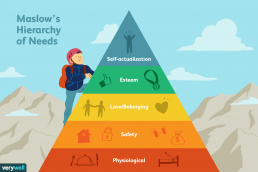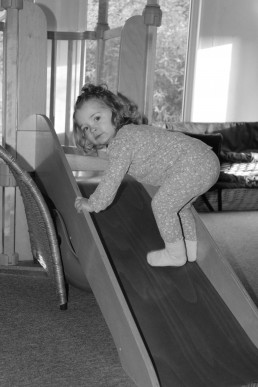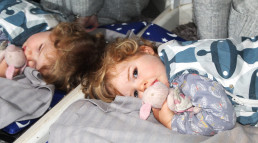Nursery Bag- What to Pack?
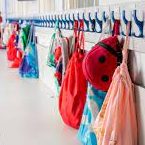
Up until now the only baby bag you've needed is your maternity bag filled with nappies, snacks and one of everything to cover all eventualities. But when it comes to starting nursery your baby will need their own bag to bring with them each day. It's that first possession that belongs to them, the start of being independent. So let's make this transition as easy as possible and give you a check list to make sure you're not forgetting anything in that all important nursery bag.
What to pack?
Every room requires something a little different, and we know there can be a lot to remember so here's a broken down list of everything you'll need in your child's nursery bag for each room.
Our Baby Rooms- Hedgehogs and Butterflies
- Bottle and Formula (we provide milk from 1 year old)
- Comforter e.g Dummy
- Sleep Sack (if needed)
- Waterproof coat or suit suitable for all conditions (We do have some waterproof trousers but for none walkers in particular padded suits are ideal)
- At least 2 sets of spare clothes and socks
- Spare bibs
- Appropriate/supportive footwear
- Wellies
Our Toddler Room- Honeybees
- At least 2 sets of spare clothes and socks
- A warm waterproof coat
- Water bottle
- Waterproof Trousers
- Wellies
- Spare Hat and Gloves
Our Pre-School Room- Ladybirds
- A water Bottle
- At least 2 spares of every item of clothing and socks
- Thick warm socks for Forest School
- Wellies
'Take care of the little things and the big things fall into place'.
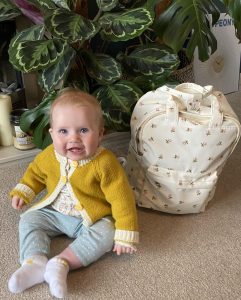
Transitions Within Nursery
Once that blissful Maternity leave you have just shared with your little one draws nearer to an end and the dreaded time comes to go back to work, beginning the transition process in to a Nursery, childminder or Nanny starts and it can be a big and daunting step for you and your little one. All sorts of emotions will come with this as you will no doubt be worried, sad, nervous, and anxious about leaving your child for the first time. However please be assured the settling in process supports you and your child to overcome these negative emotions and instead, make you feel happy, excited and reassured about this next milestone.
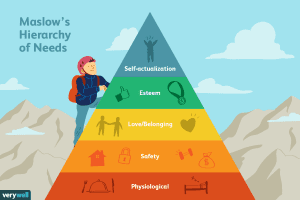 Young children starting a Nursery need support to enable them to adjust to a temporary separation from their family. Maslow’s Hierarchy of Needs demonstrates that children need to feel as safe, comfortable, and secure within the environment before they are able to move on to any other learning opportunities. Building a close bond with their Key Worker and the other Educators is particularly important so that they know they have someone to comfort them and make them smile when they are feeling a little sad. We aim to provide as much continuity and care as possible.
Young children starting a Nursery need support to enable them to adjust to a temporary separation from their family. Maslow’s Hierarchy of Needs demonstrates that children need to feel as safe, comfortable, and secure within the environment before they are able to move on to any other learning opportunities. Building a close bond with their Key Worker and the other Educators is particularly important so that they know they have someone to comfort them and make them smile when they are feeling a little sad. We aim to provide as much continuity and care as possible.
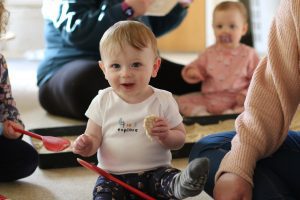 As children develop from birth throughout childhood this change involves a process for them to adapt their thoughts, feelings and behaviours to meet new expectations and even though this blog focuses on Transitions in to Nursery and between room bases, by the time they reach school age, they will more than likely of experienced more than just these transitions in their life. Depending on circumstances the child may be forced to attend more than one setting during the week and one of the big transitions they face is school. Next weeks blog will focus on transitions to school.
As children develop from birth throughout childhood this change involves a process for them to adapt their thoughts, feelings and behaviours to meet new expectations and even though this blog focuses on Transitions in to Nursery and between room bases, by the time they reach school age, they will more than likely of experienced more than just these transitions in their life. Depending on circumstances the child may be forced to attend more than one setting during the week and one of the big transitions they face is school. Next weeks blog will focus on transitions to school.
The Transition to Nursery is like a journey and takes time, preparation and planning. It is important to us that Parents and the Educators work together to make the process as smooth as possible.
The Procedure at Inspirations is as follows-
Under 2's
- A phone call is made to parents, by either the room leader or the Deputy room leader 4-6 weeks prior to the start date and a discussion is had to book in the home visit and settling in visits. It is also a chance to have a chat and ask any questions you may feel unsure about.
- Home visit 3-6 weeks prior to start date (applies to 2-year funded children also)
- Transition visits in to setting 1-2 weeks leading up to first day (1 x 1 hour with Parent, 1 x 1 hour on own and 2 x long visit (3-4 hours) over sleep and lunch or lunch and sleep depending on routine at time)
During these periods of settling in, we aim to share information and build up a picture of the child’s starting points, give a parent pack which will show pictures of the room they will start in along with pictures of the staff (identifying key worker and what their role is) and an overview of the daily routine. We give a parent handbook, check through paper work and talk about/document the routine they are currently following at home. We introduce their Key Worker and discuss any other information you feel relevant. It is also chance to speak about any allergies or dietary requirements
From 2-3 Years and Older
- A phone call is made to parents, by either the Room Leader or the Deputy 4-6 weeks prior to the start date and a discussion is had to book in the settling in visits. It is also a chance to have a chat and ask any questions you may feel unsure about.
- Transition visits in to setting 1-2 weeks leading up to first day (1 x 1 hour with Parent, 1 x 1 hour on own and 1 x long visit (3-4 hours) over lunch or tea
During these periods of settling in, we aim to share information and build up a picture of the child’s starting points, give a parent handbook, check through paper work and talk about, document the routine they are currently following at home. Introduce Key Worker and discuss any other information you feel relevant. It is also chance to speak about any allergies/dietary requirements
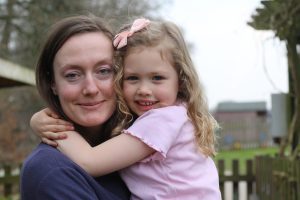 The procedure for room transitions is the same however, the conversations and planning happens between the Room Leaders, and the Key Worker attends the first visit with them. The Key Worker completes a transition form and takes this through on the first visit, this indicates starting points for the child and any other information that needs to be passed on.
The procedure for room transitions is the same however, the conversations and planning happens between the Room Leaders, and the Key Worker attends the first visit with them. The Key Worker completes a transition form and takes this through on the first visit, this indicates starting points for the child and any other information that needs to be passed on.
The impact of our procedures has shown us that the time given for them to settle in before starting is more than sufficient and during this time they have began to familiarise themselves with the environment and the Educators, in particular their new Key worker. However, if there is a chance it hasn’t gone as planned, we can offer additional support by allowing more settling in visits.
All this ground work to ensure smooth transitions helps create the right environment for your children to become confident little leaners here at Inspirations.
“If children feel safe, they can take risks, ask questions, make mistakes, learn to trust, share their feelings, and grow.” ~ Alfie Kohn
-Ashleigh
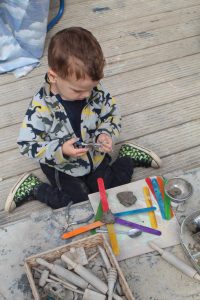
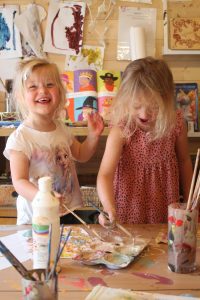
Measured Risks- Part 2
In our previous blog 'Risky Play' https://inspirationsnurseries.co.uk/risky-play/ -we defined the importance of risky play with the pre-school age group, but how can we incorporate measured risks within our youngest rooms?

Physical Risks and Emotional Risks
At Inspirations Nurseries and Forest School we are committed to outdoor play adventurous and creative play. Taking risks isn't a negative; it is about learning to safely manage tasks. Risky play can often be physical, but also includes taking emotional risks such as conquering fears and meeting new friends, and mental challenges such as learning a new routine or overcoming a fear.
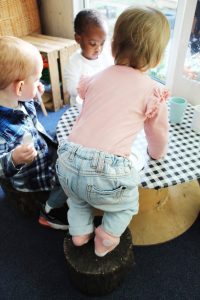 We work with our parents to find out each child's ability and how they are challenged. During home visits and settling in sessions we get to know the families and can usually determine whether the parents take measured risks themselves. At nursery, the educators will be aware of children's limits and which children need more support than others. Babies begin to take risks as soon as they begin exploring the world and their environment through crawling, rolling, walking, running and balancing.
We work with our parents to find out each child's ability and how they are challenged. During home visits and settling in sessions we get to know the families and can usually determine whether the parents take measured risks themselves. At nursery, the educators will be aware of children's limits and which children need more support than others. Babies begin to take risks as soon as they begin exploring the world and their environment through crawling, rolling, walking, running and balancing.
There are a few examples within the baby room where we have adapted our expectations to support children in their needs to explore. We noticed the babies climbing up the slide, instead of limiting this need to explore we supported them, removed their potentially hazardous socks and enabled them to learn their own limitation and boundaries.
Another example is from a few years ago involving our very low babies table. The rule was simply 'no climbing on the platform' but this need for them to explore was constant and persistent. And so, with support we allowed them to climb. Interestingly after this rule changed they stopped trying to climb on it due to the fact we enabled them to take their measured risk safely and they mastered that new skill.
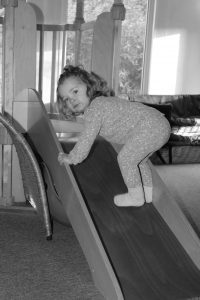
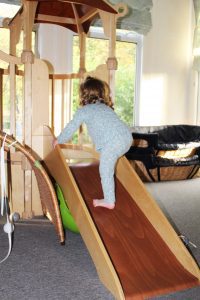

Supporting Adventurous Play
By allowing measures risks we are making our children more aware of their surroundings and abilities. Our aim is to let them find their limitations themselves instead of preventing learning opportunities. We often hear the words 'be careful' thrown around, but by simply changing our language we can help our children achieve their goals more safely. Here's some ways we can use language to encourage our toddlers and children with new tasks-
- 'Stay focused on what you’re doing.'
- 'Take your time'
- 'Find more space/do you need more space'
- 'Do you feel stable/balanced/safe'
- 'I’m here if you need me.'
- 'What could you do differently?'
The space and freedom that comes with our outdoor setting allows children to hone in on their motor skills, build their muscles and indulge in their natural curiosity. In our toddler room garden we have created a separate area incorporating some trees for climbing, slopes and ropes with uneven surfaces. This is heavily supervised but allows the children to take more risks in a safe environment. It strengthens their resilience and prepares them for even more opportunities when they are able to go in the woods for forest school sessions when they turn 3. With support and the right environment there is no limit to the tasks they can accomplish.
'The more risks you allow children to take, the better they learn to take care of them selves'
 - Kayleigh
- Kayleigh
Settling into our Baby Rooms
In today's blog we take a look at the settling in process and key person allocations across our two baby rooms- The Hedgehog Room and The Butterfly room. There are many benefits to your child starting a childcare setting, it's a chance for them to develop additional social skills, learn new skills and gain independence away from their main carers. For this reason we ensure we create close bonds between our staff and your family, particularly between your child and their key person. But what is a key person?
 The importance of relationships
The importance of relationships
'Key person' is a term used a lot in nurseries and it a vital part of our nurturing setting at inspirations. The statutory frameworks (2017) states;
“Each child must be assigned a key person. Providers must inform parents and/or carers of the name of the key person, and explain their role, when a child starts attending a setting. Children thrive from being a part of loving and secure relationships. Children learn best when they are healthy, safe and secure, when their individual needs are met, and when they have positive relationships with the adults caring for them”.
Prior to starting Inspirations, we offer a home visit, a chance for your key person to visit a few weeks before your child's start date. This is an opportunity to tell us all about your child but also a chance for you to ask questions. This will be followed by a series of settling in visits at our setting as follows-
- 1 hour with parent or carer
- 1 hour on their own
- Longer visit including Lunch or sleep
- Last visit including lunch and sleep
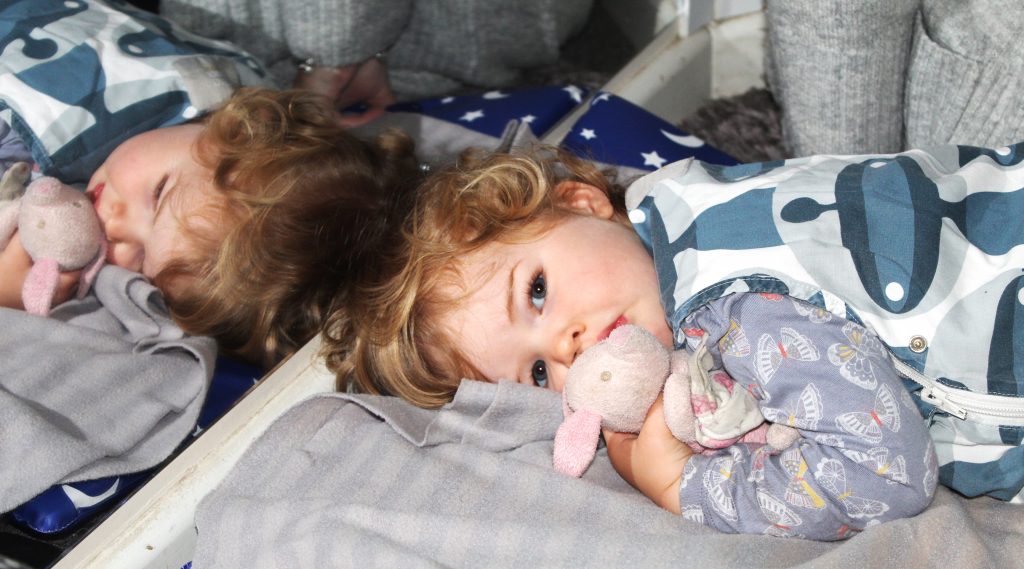
During the first session, the key person will spend time with the child and the parent; a general 'getting to know you' session. We will ask you to complete a ‘starting points’ sheet to show us what your child is currently doing and how we can meet their needs. We will also discuss sleep patterns, eating and conversations about your families and any festivals celebrated, religions or dietary requirements. By following your child’s individual routine will help them feel safe and secure, and create a home away from home. 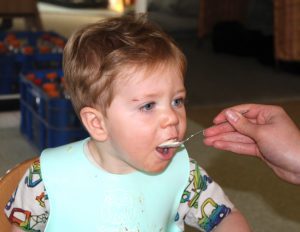 We are proud of our strong partnerships with parents and ensure we welcome you and your family into our Nursery and Forest School community.
We are proud of our strong partnerships with parents and ensure we welcome you and your family into our Nursery and Forest School community.
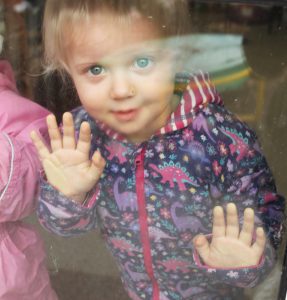 Positive relationships is one of the overarching principles of the EYFS. It’s important to form positive relationships with the children and role model the importance of 'making relationships' with others too.
Positive relationships is one of the overarching principles of the EYFS. It’s important to form positive relationships with the children and role model the importance of 'making relationships' with others too.
The Importance of Attachment
The attachment theory originates from the work of John Bowlby (1958). He wanted to look more in depth at the importance of the child’s relationship with their mother in terms of their social, emotional and cognitive development. He formulated his theory surrounding a link between early infant separation with the mother and later mental health problems. Bowlby proposed that attachment with a caregiver provides safety and security for an infant. Within his theory, it is suggested that between 0-5 years old is a critical period of time to form attachments with care givers and forms a secure base for children when exploring the world. Attachments are emotional bonds that children develop with parents and other carers such as their key person at nursery. It is thought that children who have secure attachments cry less when separated, they engage in more pretend play and have a strong sense of who they are. The settling in visits we offer are to support the attachment theory and help the children start to form those attachments with their key person and even the other adults and children in the room.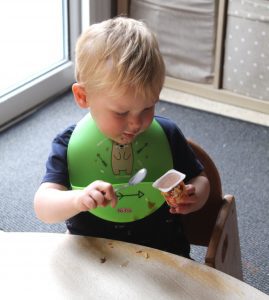
The home visit and the first visit with the parent is vital to show the children that the parent trusts this new person in their life and they can role model a positive relationship through talking about your children.
If you have any other questions about our baby room settings please don't hesitate to get in 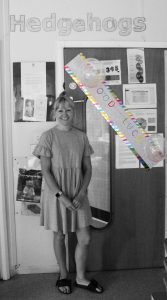 touch at 0113 2585800 then follow the extension to either the Office, The Butterflies or The Hedgehogs.
touch at 0113 2585800 then follow the extension to either the Office, The Butterflies or The Hedgehogs.
This week we are excited to announce Sophie will be our new Room Leader of The Hedgehogs room, as Tara moves on to her new role as Training Manager after 17 years of running the Baby Room. We wish them both well in their exciting new roles within our Nursery.
